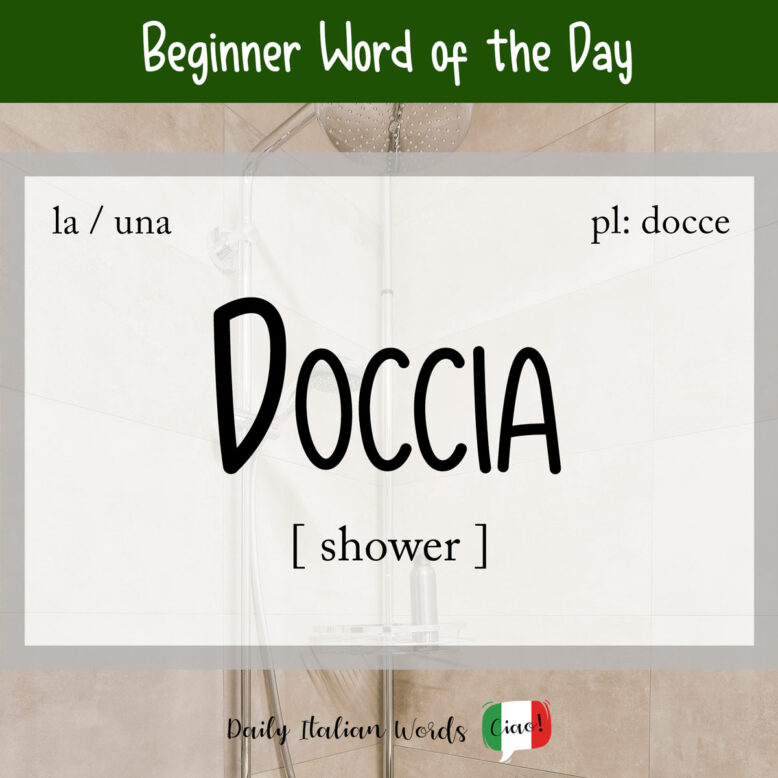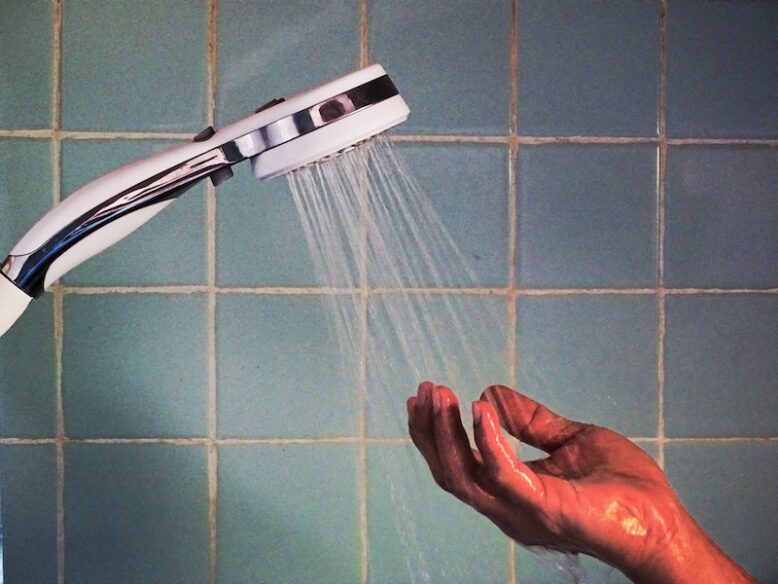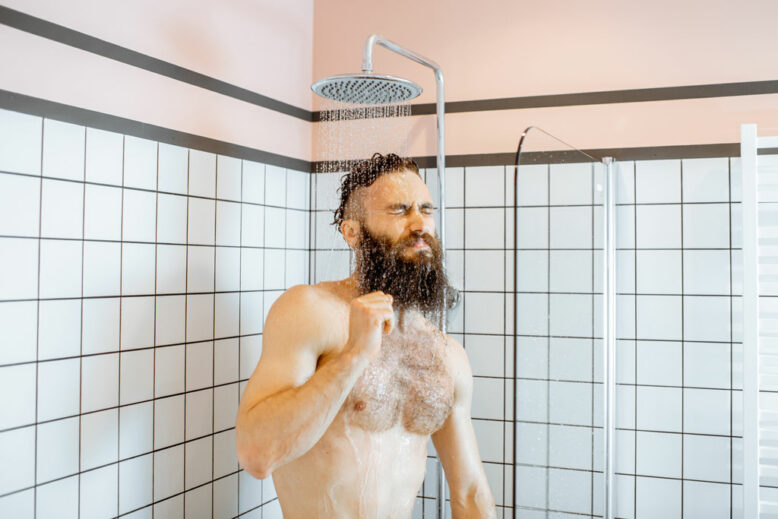The word for shower in Italian is doccia (feminine, plural: docce). It derives from the now-obsolete doccio, the term for an archaic kind of gutter or drainpipe.
As in English, doccia can refer to the apparatus that produces the spray of water, the cubicle itself, and the act of showering.

To take / to have a shower can be expressed in two ways in Italian: fare la doccia or farsi la doccia. Both are correct, but the second places the emphasis on the fact that you are performing the action on yourself (rather than someone else) thanks to the reflexive pronoun si. The subtle difference in meaning is comparable to the phrases I’ll have a sandwich and I’ll have myself a sandwich in English.
Faccio sempre la doccia al mattino, non appena mi sveglio.
I always have a shower in the morning, as soon as I wake up.
Mi faccio sempre la doccia al mattino,non appena mi sveglio.
I always have a shower in the morning, as soon as I wake up.
(lit. I have myself a showerin the morning, as soon as I wake up.)

There are also three ways to say that one is in the shower:
- essere sotto la doccia (lit. to be under the shower)
- essere dentro la doccia (lit. to be inside the shower)
- essere nella doccia (lit. to be in the shower)
Then we have a few useful terms that are associated with showering:
- cabina doccia / box doccia = shower stall
- docciaschiuma = shower gel
- piatto doccia = shower tray
- cuffia per la doccia = shower cap
- soffione della doccia = shower head
- doccino = shower head (the kind you hold like a microphone)
- doccia multigetto = power shower
- tenda da doccia = shower curtain
Doccia fredda quite literally means cold shower, but it is also a figurative term for a sudden and unexpected disappointment. A doccia scozzese (lit. Scottish shower), on the other hand, refers to a hot and cold water shower, as well as a rapid succession of good and bad events.
La sua partenza improvvisa è stata una doccia fredda per tutti noi.
His departure was a kick in the teeth for us all.

Finally, a doccia solare (lit. sun shower) refers to the tanning booth where ultraviolet rays make someone’s skin darker.
Heather Broster is a graduate with honours in linguistics from the University of Western Ontario. She is an aspiring polyglot, proficient in English and Italian, as well as Japanese, Welsh, and French to varying degrees of fluency. Originally from Toronto, Heather has resided in various countries, notably Italy for a period of six years. Her primary focus lies in the fields of language acquisition, education, and bilingual instruction.


